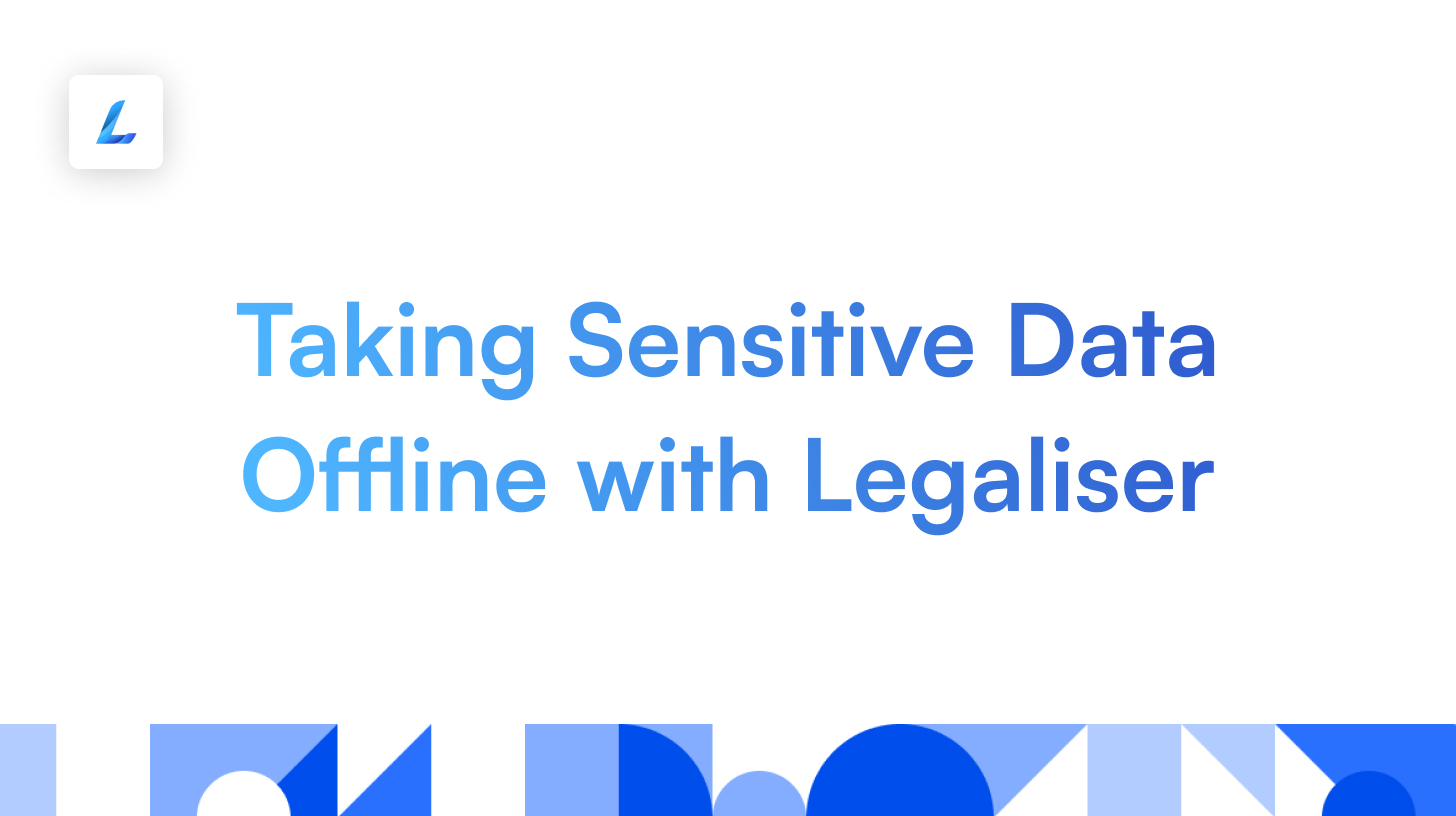In an era where digital breaches make headlines almost daily, the protection of sensitive legal data becomes paramount. More than ever, legal firms, institutions, and individual practitioners grapple with the looming threat of cyber-espionage, seeking robust solutions to shield their invaluable information. In this article we explore the power of offline AI for sensitive data.
Data privacy is no longer just a concern relegated to the realms of digital encryption and cybersecurity; it also pertains significantly to the very tangible realm of physical security. Just as vaults once protected our most treasured possessions, offline storage solutions are becoming the modern-day vaults for data. Stepping boldly into this domain, AI-driven tools like the Legaliser Hardware are redefining how we view data protection.
By melding cutting-edge technology with traditional security principles, they offer a promising bridge between the past’s tangible security and the future’s technological advancements. This piece dives deep into the transformative role of AI in safeguarding legal data, underscoring the advantages and sheer necessity of transitioning sensitive information offline in today’s volatile digital landscape.
Data Privacy Basics and Definitions
Legal data, encompassing a treasure trove of confidential client information, strategic decisions, intellectual property, and proprietary algorithms, stands as a coveted prize for malicious actors prowling the digital landscape. The sheer value and sensitivity of this data necessitate a firm grasp of key terminologies to navigate the evolving landscape of data protection.
Offline Data Storage: This practice involves securely housing data on physical media that is intentionally disconnected from online networks. By isolating information from the digital realm, this method significantly reduces exposure to a wide array of digital threats, safeguarding it like a well-protected vault amidst the digital chaos.
Data Breach: A dreaded occurrence in the realm of data security, a data breach refers to a security incident where protected and confidential data is illicitly accessed without proper authorization. These breaches can lead to dire consequences, from reputational damage to legal repercussions.
Encryption: A fundamental technique in data security, encryption involves the transformation of data into a code that renders it incomprehensible to unauthorized access. It acts as a digital lock, ensuring that even if data falls into the wrong hands, it remains unintelligible and protected.
Hardware Security Module (HSM): This is a physical device designed explicitly to safeguard digital keys used for robust authentication processes. By securing the keys physically, HSMs add an additional layer of protection to critical data.
Storing data offline, especially sensitive legal data, isn’t a novel concept but rather an age-old practice that has stood the test of time. It serves as a resilient fortress, effectively removing the data from the continuous threats of the online world, providing an added layer of security that is indispensable in today’s cyber-centric landscape.
Relevant Cases of Data Breaches
Historically, instances of substantial legal data breaches reveal that the vulnerability of sensitive information transcends digital boundaries and extends into the realm of physical storage. One illustrative example is the infamous Watergate scandal of the 1970s. During this tumultuous period, sensitive documents within the Democratic National Committee were unlawfully accessed by individuals connected to then-President Richard Nixon’s administration. While not a breach in the contemporary digital sense, it was a pivotal moment in the history of data security.
The Panama Papers leak in 2016 serves as a more recent and stark reminder of these vulnerabilities. This massive data breach exposed a trove of confidential financial documents that detailed the offshore accounts of several high-profile personalities, including political leaders and celebrities. The incident underscored the weaknesses in modern data storage and the dire consequences of lax security measures.
Similarly, earlier breaches at law firms like Mossack Fonseca showcased how the absence of robust offline data storage practices might have contributed to extensive data exposures. With the aid of AI-enhanced offline tools, it becomes conceivable to analyse patterns, predict vulnerabilities, and streamline data protection, potentially averting such high-profile breaches and their far-reaching repercussions. These historical examples shed light on the pressing need for advanced solutions like Legaliser Hardware to fortify data security in an increasingly interconnected world.
Offline AI for Sensitive Data
AI’s foray into law isn’t limited to analytics and predictions. Its integration extends to proactive measures like enhancing data security. With capabilities like pattern recognition, anomaly detection, and predictive analytics, AI tools can preemptively flag vulnerabilities, even in offline data storage. Moreover, when coupled with physical hardware, AI can streamline data retrieval processes, making offline storage more efficient without compromising security.
Introduction to Legaliser
Introducing the Legaliser Hardware, a AI-powered tool meticulously crafted to bring the best of both worlds: the impregnable security of offline data storage and the intelligent analytics that modern legal practices demand. At Legaliser, we understand the paramount importance of safeguarding sensitive legal data, and we’re taking bold strides to develop a dedicated hardware device that operates exclusively offline, assuring our enterprise customers that their data remains strictly private.
Our upcoming Legaliser Hardware product is designed to meet the unique needs of legal professionals, ensuring that all data is kept strictly confidential and impervious to the threats of the digital world. This device transcends mere storage; its sophisticated algorithms work tirelessly to organise, categorise, and retrieve data with unmatched efficiency, empowering legal practitioners to access critical information seamlessly.
For those eager to explore the prowess of the Legaliser Hardware, we’re thrilled to offer a free trial. It’s your opportunity to experience firsthand the game-changing capabilities that this device brings to the table.
We firmly believe that this innovative tool will redefine data security in the legal domain, setting new standards for confidentiality and accessibility in an ever-evolving digital landscape. Join us on this journey towards a safer, more efficient legal practice with the Legaliser Hardware. Get in touch to learn more!
Conclusion
In the intricate dance of legal data protection, the blend of AI and offline hardware storage is a game-changer. Tools like Legaliser Hardware remind us of the unmatched value of tangible security. One thing becomes clear from this article: the future of legal data lies in smart, secure, and offline sanctuaries.






